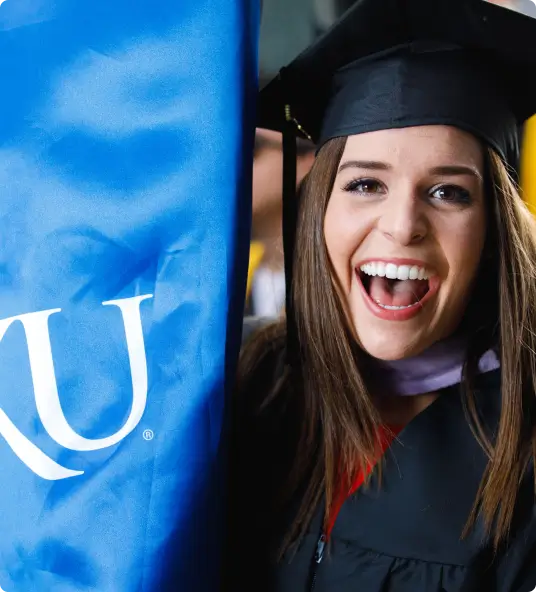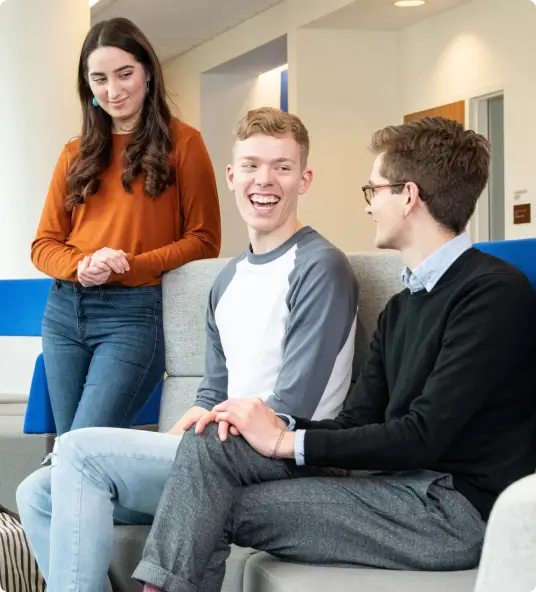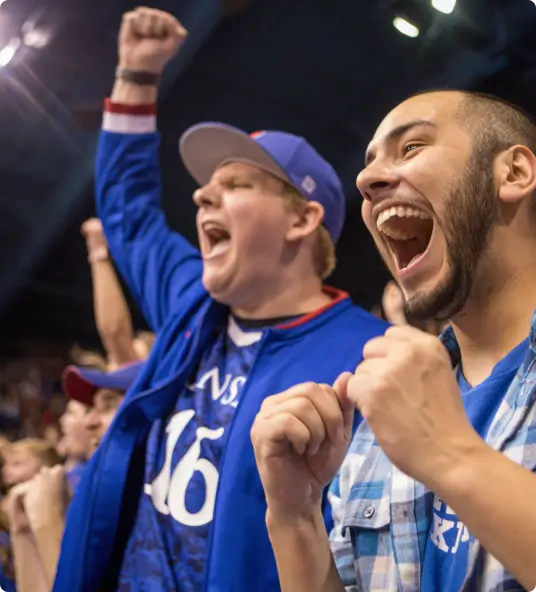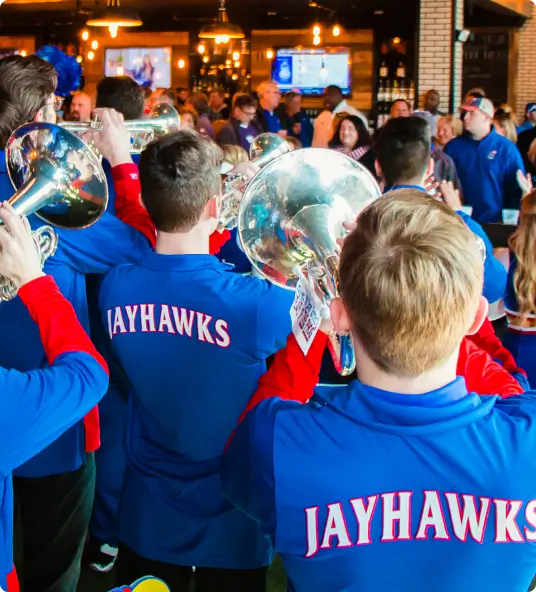Jayhawks in leadership positions are everywhere you look, including through the Jayhawk Career Network. KU Alumni, in partnership with SumnerOne, is highlighting Jayhawk leaders who are models for others in their industries with our “Copy the Leader” program.
What do you do in your work?
The overall vision for my office is to engage with our tribal communities, our tribal students at KU and Haskell, and our tribal nations, in order to be better relatives. A lot of my work has focused on our institutional relationship with our sister institution, Haskell Indian Nations University. We have a joint program called the Haskell/KU Exchange Program where students from each institution have the opportunity to take a course at the other institution, while being a full-time student at their host institution.
In addition, my office has been assessing the current structures we have to serve our Indigenous population and working on ways to fill the gaps, where needed. We have some amazing initiatives that are already in place at KU and we have a lot of great folks ready to help support our Indigenous population, so our office has become a resource for campus.
My role is a new role at KU so we have a lot of new initiatives that we are looking to start but when it comes down to working with our tribal communities, building a relationship or improving the relationship we do have is my number one priority. One way we are hoping to share the work out of our office is through our website, nativesuccess.ku.edu. I am excited to not only share what we are working on but to find others interested in this same work. Together we can lead this work.
What are the qualities of a good leader?
There are a few qualities I feel make a good leader and much of this can be contextualized by the work of Brené Brown, who I enjoy reading:
- A good leader is someone who has a clear vision that their people understand and can get behind.
- A good leader is someone who can adapt, who is ready to make a change when needed.
- A good leader is someone who is not afraid to jump right in and do the work they are asking of their people, for the greater good for those they serve.
- A good leader listens.
How do you practice leadership at your job?
Personally, being a good leader is someone who is a good relative. This is deeply rooted in my upbringing as a Diné (Navajo people), and it drives my work. Being a good relative is having a responsibility to those around me (my colleagues, the students, the tribal communities and tribal nations I serve). Essentially, the work is about the people we serve and it is their success that we envision. This makes us good relatives and will make collaborating or partnering a seamless action. More specifically, my office is working to improve the ways we serve our Indigenous students at KU through a community of care that centers their success in the broader spectrum of family, tribe, and community.
What makes a team or group successful?
After having attended the Aspiring Leaders program at KU, I became more familiar with the work of Brené Brown and her work conceptualizes the answer to this question very well. I agree with this statement that she makes, “effective team members recognize vulnerability yet act with courage,” and the four elements of courage building are:
- Vulnerability — “You have to be willing to be show up and be seen. If you can’t take the armor off, you can’t change.”
- Trust — “You have to start building trust through a very specific behavioral approach.”
- Clarity of values — “When you ask people to get clear on their top one or two values, what people see quickly is, ‘I can’t live into this value, without vulnerability and courage.’”
- Rising skills — “You need the ability to get back up when you fail and experience heartbreak.”
How have you adapted to the changes brought by the pandemic in your work?
My new role started in the middle of the pandemic so my work only knows the pandemic, but that has brought innovate modes of connecting for our office. One of the more successful modes of connecting has been offering hybrid events. With partners across campus we hosted Dr. Joshua Allison-Burbank for Indigenous Peoples’ Day, Dr. Alex Red Corn for Native American Heritage Month, and in partnership with the First Nations Student Association, we held community conversations with current KU Indigenous faculty. We hope to continue these types of activities to keep our communities as safe as possible.
Want to receive alumni and career stories like this in your inbox? Subscribe to the Water Cooler, a monthly career newsletter for alumni, students and friends. It includes upcoming events, featured mentors, stories about alumni and students, jobs and more.




